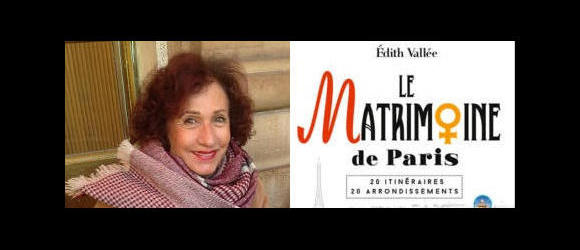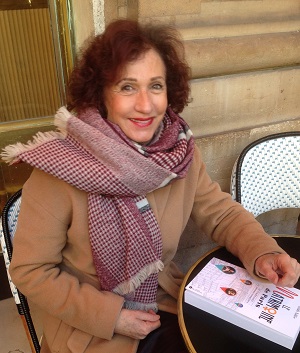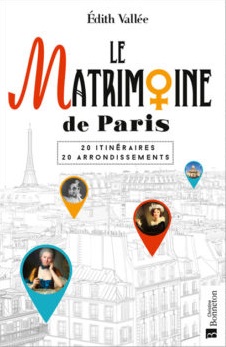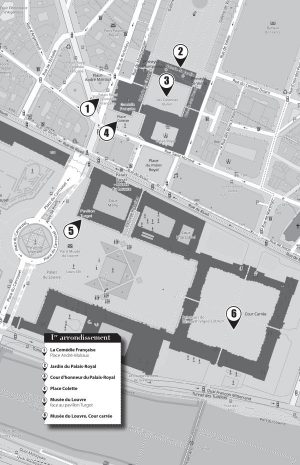
Cherchez la femme? Even in Paris that’s not an easy task from a historical standpoint. Only 2.6% of the city’s streets are named for women. And while there’s no shortage of female statues gracing Parisian parks and balancing neo-classic pediments on their heads, those semi-clad ladies tend to be nameless allegorical figures. Any Martian touring the City of Light would be forgiven for thinking that human women made no significant contribution to French culture.

That’s the perception that psychologist, author and feminist Edith Vallée sets out to rectify in Le Matrimoine de Paris (2018), a book that grew out of the popular Matrimoine tours inaugurated in 2015 that added a pinch of estrogen to the annual Journées du Patrimoine (Heritage Days), when heritage sights are celebrated throughout France and elsewhere in Europe on the third weekend in September.
While patrimoine now commonly refers to heritage of all kinds, its etymology leads back to the Latin word patrimonium, meaning heritage of the father. Hence the desire to infuse the notion of heritage with some gifts from mother by creating the analogous term matrimoine. To English speakers, matrimoine may be too close to matrimony for comfort and lead us to think of marriage, but French-speakers immediately recognize it as a feminist riff on patrimoine, as herstory is on history for English-speakers.
Her story is history as well
With a chapter (and a handy map) for each of the city’s twenty arrondissements, Le Matrimoine de Paris tracks the city’s female history-makers. Some of the names are familiar: Coco Chanel, Marie Curie, Simone de Beauvoir, Isadora Duncan, Françoise Sagan.

Sadly, all too many will draw blanks, such as ex-slave abolitionist Queen Bathilde (626 – 680), vengeance-driven pirate Jeanne de Belleville (1300 – 1359), poet/historian Christine de Pisan (1364 – 1430) and revolutionary firebrand Olympe de Gouges (1748 – 1793).
The stately Théatre du Palais Royal in the 1st arrondissement allows Vallée to tell the roller-coaster tale of Mademoiselle de Montansier (1730 – 1820), France’s first stage impresario, who parlayed a smallish stake (earned through gambling and the sex trade) and a friendship with Marie-Antoinette into an entertainment empire managing multiple theaters throughout France.
Montansier’s own acting abilities were not strong enough to convince the Revolutionary Council that she was anti-royalist, but in a melodramatic flourish, she postponed her final act when her arch-enemy Robespierre was beheaded a few days before her own date with the guillotine.
She made a fortune, lost it and did a stint in debtor’s prison before convincing Napoleon to build her a new theater. She died peacefully, a rich and successful self-made woman, at age 90.

Many of the stories have unhappier endings: Standing out from the crowd often got women burned the stake (Joan of Arc); beheaded (Olympe de Gouges); bundled into nunneries (author/investment capitalist Madame de Tencin) or insane asylums (sculptress Camille Claudel); excommunicated for their art (Rachel Félix, La Champmeslé) or cheated out of their earnings (Colette).
Vallée also describes the necessary life-hacks that women were obliged to employ in order to get their work noticed, or to be able to work at all.
“We can’t let women be erased from history, and sometimes history itself does that,” says the author, noting that mathematician Emilie du Châtelet (1706 – 1749), considered a world-class savant in her day, has somehow morphed over the years into “Voltaire’s brainy girlfriend.”
The book, well-received in France, is not yet translated in English but the French is not overly complex. It’s the perfect guide for a #TimesUp tour of Paris.
Le Matrimoine de Paris by Edith Vallée. Published by Editions Christine Bonneton, 2018. 18€.
© 2019, Corinne LaBalme.

